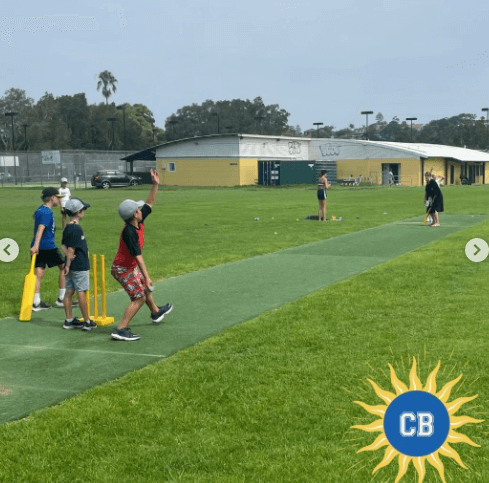I remember being all fired up at one of my teens for being glued to their phone without even asking what they were up to. They hit back at me with the same attitude, saying they had 10 minutes left of whatever they were watching. I might have slipped in a snarky comment about it being ‘crap’. Turns out though, they were actually watching a David Attenborough clip about a bug’s 24-hour life cycle. I had to swallow my pride, apologise, and then ask them to show me what they were watching because it sounded fascinating.
The Online World Our Kids Live In
As our world keeps changing, it’s no surprise that we’re all worried about our kids’ well-being. Social media and tech seem to be the talk of the town, but let’s not forget to see things from our kids’ point of view. The digital world is just a natural part of their lives; they’ve never known anything different. And let’s face it, their take on social media and the online scene is totally different from ours as parents.
When we look at how kids interact with technology, it’s clear they’re not just sitting back and letting it all happen to them. They’re actually using it in different ways, both good and bad. While it’s natural for parents to worry how much time their kids spend online, we also need to recognise that social media can be helpful for them too. They use it to manage their emotions, stay connected with friends, and even get help with schoolwork.
As Jackie Hallan, interim chief executive of ReachOut, aptly puts it, “Young people are using social media in positive ways to get support.” Indeed, platforms like TikTok serve as outlets for relaxation and amusement, offering moments of respite from the stressors of everyday life. Moreover, for many children, online spaces provide a vital lifeline for seeking advice, sharing experiences, cultivating a sense of belonging and learning.
Do We Need a Digital Detox?
However, amidst the undeniable benefits lie genuine concerns about the impact of excessive screen time on children’s mental health and overall wellbeing. The 2022 ReachOut survey illuminates the prevalent worries among young people, with issues such as the future, academic pressure, and financial stability topping the list. These pressures show up in real ways, like not being able to sleep well and struggling to stay focused or motivated.
So YES Digital Detox is a good thing for all of us! Taking a break from tech and all the pressures of the world doesn’t mean completely disconnecting. It’s more about taking a step back and thinking about what really matters.
Guiding Your Kids Through Digital Detoxification
Encouraging your kids to spend time doing things they love offline, like hanging out with friends without tech or pursuing hobbies, can help them feel happier and more balanced.
It’s about building their resilience, helping them make in person connections with people and nature and giving them a sense of purpose in the real world.
Below, you’ll find a list of collaborative and painless ideas to make the ‘digital detox’ a more engaging experience and facilitate open conversations about our online lives with our children.
Electronic and Phone Detox Ideas for Kids and Teens
- Create Fun “Tech-Free” Zones: Designate special areas at home where screens are not allowed, like a cozy reading corner or a crafting table for artsy projects.
- Explore Cool Offline Hobbies: Try out new hobbies together, like baking yummy treats, building model airplanes, or even starting a family garden.
- Have Family Game Nights: Plan exciting game nights filled with board games, card games, or even scavenger hunts for a blast of family fun.
- Go on Outdoor Adventures: on outdoor adventures like hiking, biking, or exploring local parks
- Have crafts available, tinkering is a great way to encourage creativity and imagination. Having markers and a colouring book just out on kitchen bench is an easy go to and a great way to relax.
- Walk the dog after dinner: Encourage the kids to be part of the evening walk. Great for digestion and keeps them going straight back to their room after dinner.
- Reading: promote promote promote. Even bribe, it doesn’t matter if it is novels or comics.
- Practice Relaxation and Mindfulness: This could be something that you as a parent does but it is open for the kids to join. Even putting a short 5 min mindfulness podcast on, on your way to school.
- Music, encourage listening or playing or even dancing.
- Share Feelings – Highs and lows at dinner table is a great way to chat about the day and help encourage open communication.
- Start sharing funny / interesting things you find on social media. This can help open the line of them sharing things with you and you having a better understanding of what they are watching being able to relate a little.
Get Offline with Camp Blue
Camp Blue has Day Camps for children and teens in Manly, Stanmore and Melbourne, overnight camps, teen camps, and a camp for 3 and 4 year olds. Apply online for NSW and VIC.
*ReachOut is a fantastic online resource for young people which lets young people connect on their terms.
Written by Sam Bell:
For over three decades, Sam has been dedicated to fostering children’s growth beyond the classroom. As a recognised expert in her field, she is the visionary founder of the highly acclaimed school holiday programs at Camp Blue, where she continues to champion opportunities for kids to thrive outside traditional educational settings.



